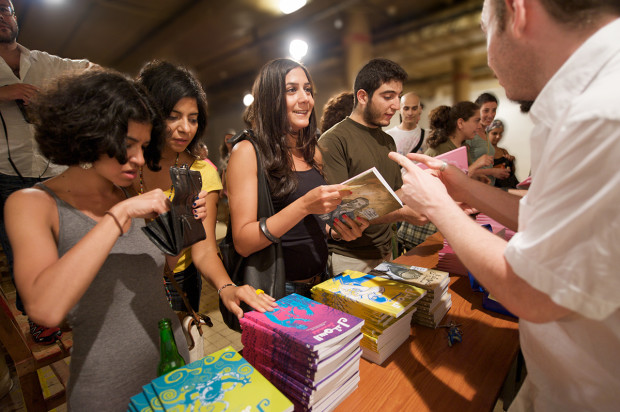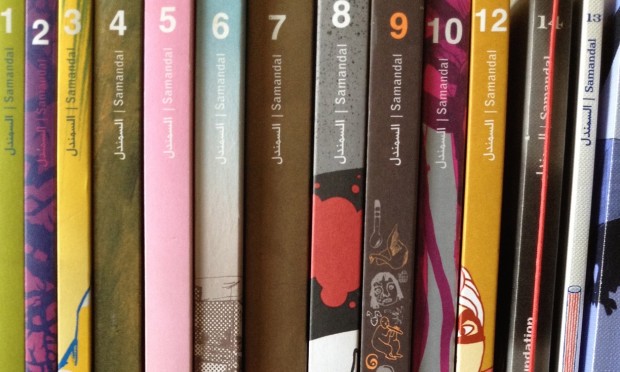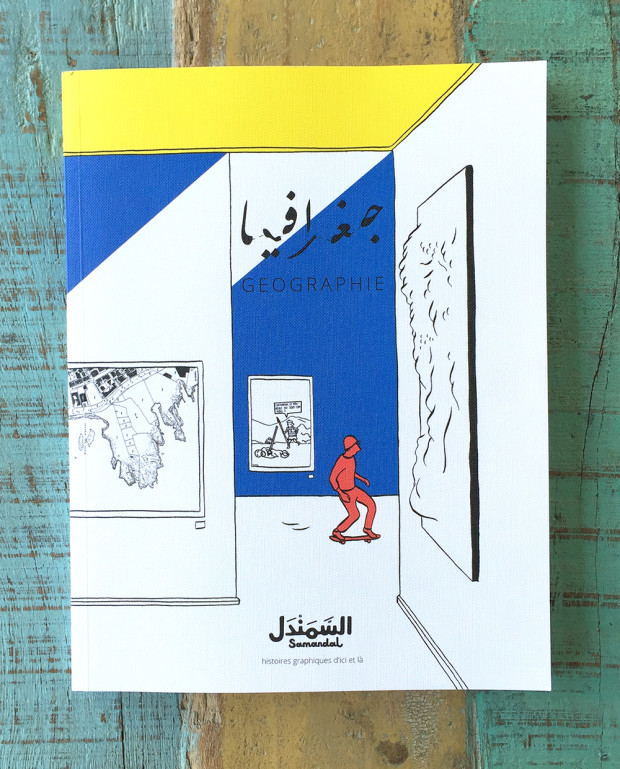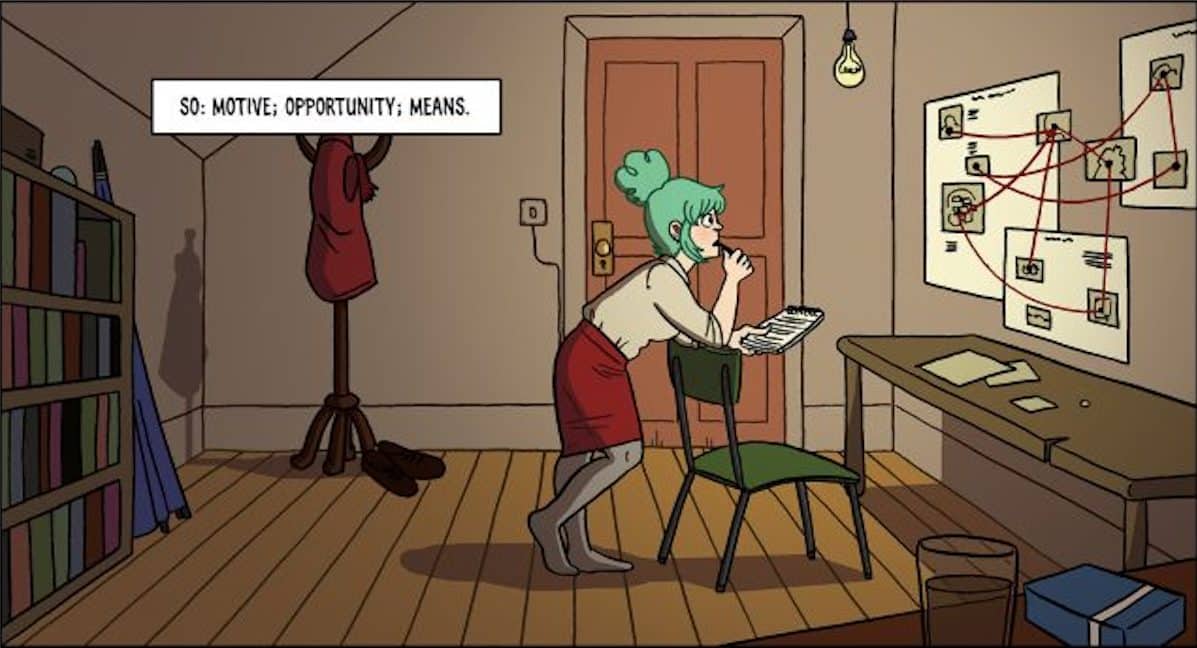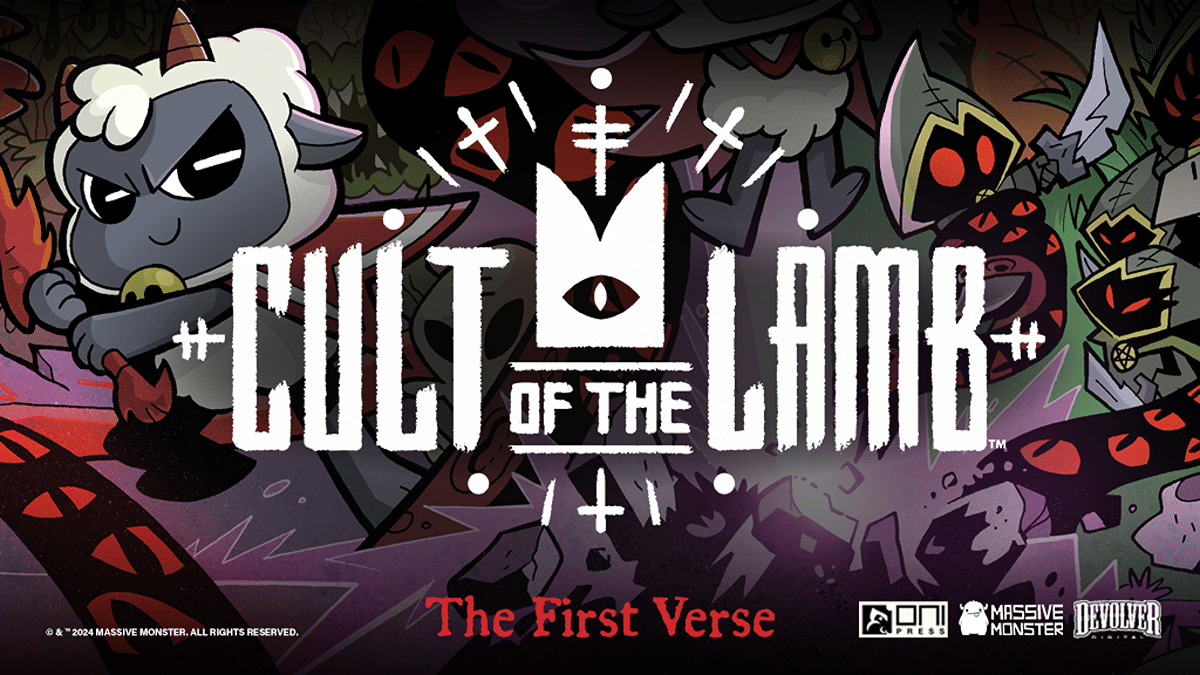While you may not know much about Samandal, you should. Since 2007, the Lebanese comics anthology series has been spotlighting talented writers throughout the Middle East, even as the region has gone through a particularly tempestuous period of turmoil. The anthologies have been published around the world in English, French, and Arabic, but soon may not be, thanks to a legal case brought forth by the Lebanese government.
According to an in-depth interview The Comics Journal conducted with the anthology series’ four editors, Omar Khouri, Lena Merhej, Hatem Imam and Fadi Baki (FDZ), the group, excepting Lena, was found guilty of:
a) Inciting sectarian strife b) denigrating religion c) publishing false news and d) defamation and slander.
Defamation and slander have become the standard accusation with the recent rise of legislation in Lebanon, where the accusing party enjoys some kind of political power and uses the legal system to exercise it. In the recent protests of the summer in Lebanon, the country saw a surge in various slander and libel cases issued by political personalities and parties against individuals.
The religious garnish comes from the case being instigated by the Catholic Media Center, which is famous for pursuing all kinds of censorship against films, books, music and- now- comics. Their letter to the minister of information put into motion the bureaucracy that used Lebanon’s vague censorship law to essentially indict us of upsetting them. I assume that the function of these laws is to prevent people from using religion and sect to incite hatred against another religion or sect. Yet in the current application of these laws, it is the politicians and their religious counterparts, who make careers out of fomenting hatred between sects and religions, that are using these laws to keep people in line.
A powerful New Yorker piece adds further specificity to the charges, which were primarily incited by two comics published in a Winter 2009 issue of Samandal, where the stories were primarily based around the theme of revenge:
One of the offending entries, “Lebanese Recipes for Revenge,” was drawn by Lena Merhej, an editor at Samandal. It illustrated a series of common oaths in the Levantine vernacular, equivalent to quaint expressions like “to hang someone out to dry.” One of the expressions was the phrase “yahriq deenak” (“May [God] burn your religion”), a saying that usually telegraphs exasperation rather than sectarian abuse. Using the same literalist style of the other “recipes,” Merhej illustrated the expression with a scene of a priest and an imam doused with gasoline and lit on fire.
The second comic that caught the attention of the censors was drawn by a French artist named Valfret. It was about a Roman centurion in ancient Palestine who has sex with a legionnaire after a night of drinking and then kills him in shame and self-loathing. Seeking to pin the crime on someone else, he leads the Roman army in a revenge attack against a group of locals who belong to the nascent Christian sect. The comic ends with the centurion beholding one of his crucified victims, beneath a thought bubble that reads, “C’est toi qui est PD.” (“You’re the queer.”) The comic was titled “Ecce Homo.”
Indeed, for publishing these two stories, the editors of Samandal are now now marked individuals in the eyes of the government, giving what fdz calls a “greenlight for general security to mess with us whenever we have dealings with them (I got my passport detained for weeks without any reason before I found out that I was flagged for a warrant of subjugation).”
In addition to doling out social punishment, the Lebanese government fined the Samandal team 30 million Lebanese liras, or approximately $20,000. While that may not seem like much compared to the millions big businesses get fined regularly for all sorts of heinous crimes, remember that this is comics, where $20,000, according to some surveys, is more than what about half of comics artists make in a year. No one should be fined a year’s salary for exercising their freedom of speech.
Samandal is run entirely on donations from issue to issue, and does not make a profit. Without help, the fine will force the team to shutter their doors, closing a major access point for Middle Eastern creatives to broadcast their ideas to the world in a time where they need to be heard more than most. To that end, the team has launched an IndieGoGo campaign, “The People vs. Samandal Comics,” to crowdfund the anthology series moving forward. Merhej will edit the next planned entry in the series, and wants to center the anthology around “things left unsaid or things only said behind closed doors. I am hoping with that to bring about questions of sexuality, a broader context for things related to gender, feminism and queerness.”
Backing the campaign, which ends on December 29th, can score you some interesting rewards, which range from prints to original art. We know that money is tight during the holiday season, but we at The Comics Beat think if anyone deserves some holiday cheer this year, it’s Samandal. They’ve done a great deal for the international comics community, and with our help, will hopefully have further opportunities to do so in the years to come.


